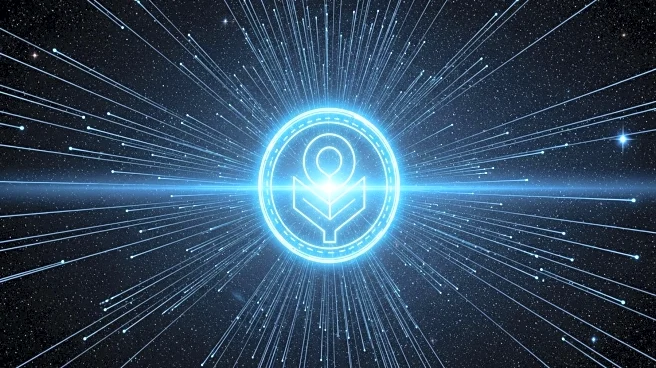What is the story about?
What's Happening?
Spacecoin has achieved a significant milestone in its efforts to establish a decentralized communications network that could potentially compete with SpaceX's Starlink. The company successfully transmitted secured data via its demonstration satellite, validating its ability to execute encrypted transactions in orbit. This blockchain transaction, sent from Chile to Portugal, serves as a proof-of-concept for moving cryptographic signatures and encrypted data through space. Spacecoin founder Tae Oh emphasized the importance of this mission, which was launched in December 2024 with SpaceX, as a step towards building a decentralized network of communications satellites. The satellite, CTC-0, is the first in a series of prototypes, with plans for larger satellites to enhance performance.
Why It's Important?
The successful demonstration by Spacecoin marks a pivotal moment in the pursuit of decentralized internet infrastructure. Unlike traditional satellite broadband networks like Starlink, Spacecoin's approach is based on tokenized access and decentralization, aiming to maintain internet freedom while ensuring safe, untraceable browsing. This development could challenge existing satellite internet providers by offering a censorship-resistant and monopoly-independent alternative. The implications for global internet access are profound, potentially reducing vulnerabilities to outages and censorship, and lowering cost barriers, which could benefit underserved regions and promote internet freedom.
What's Next?
Spacecoin plans to launch additional satellites, collectively known as CTC-1, which will be larger and more capable than the initial prototype. These satellites are expected to enhance the performance of the decentralized network. The company is also preparing to launch 'Starmesh,' an encrypted internet traffic network, which will further support decentralized web services. As Spacecoin continues to develop its infrastructure, it may face competition from established players like SpaceX and Amazon's Kuiper, who are also expanding their satellite broadband services.
Beyond the Headlines
The move towards a decentralized satellite-based internet system raises important ethical and legal questions about internet governance and access. By providing a censorship-resistant platform, Spacecoin could influence global internet policies and challenge existing regulatory frameworks. Additionally, the use of blockchain technology for internet transactions introduces new dimensions of privacy and security, potentially reshaping how users interact with digital services.


















